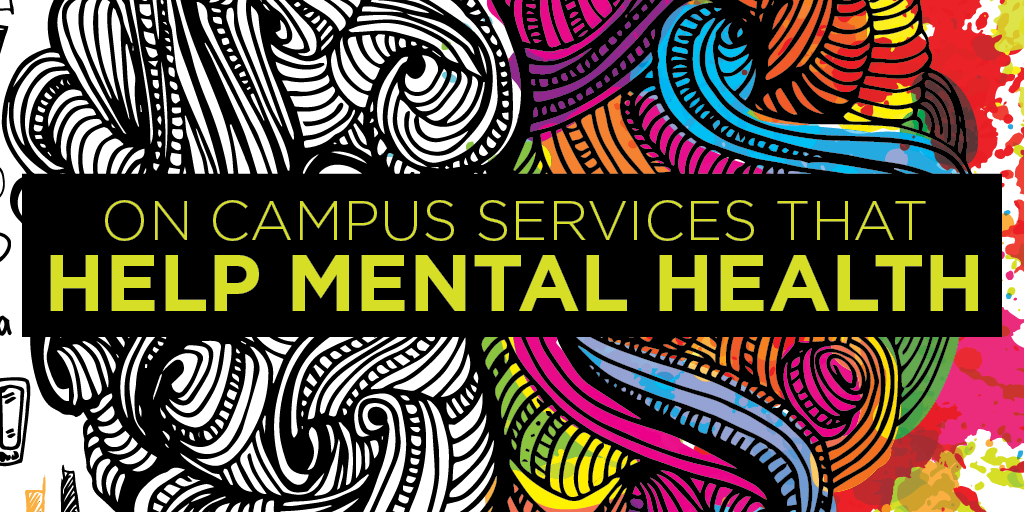On campus services that help mental health

To help deal with anxiety and stress, Fanshawe College provides services to help find ways to conquer the stress. The largest service for mental health on campus is the Counselling and Accessibility Services department.
The office offers personal counselling for mental health issues, helps accommodate students with physical or learning disabilities and can guide them through academic and career counselling. Counselling sessions include coping strategies for stress, helping with mental health, academic learning strategies and career planning.
According to Suzanne Book, senior manager of Counselling and Accessibility Services, there is a large amount of students who visit the office for mental health aspect of its services.
“We see about 30 to 400 students with accessibility needs and we see just under 3,000 for personal counselling or academic career. It used to be kind of split between students coming in for talking about their academic program, career counselling and personal. Now, in at least the last five years, many more students seeking support for that personal counselling piece.” Book said.
All personal counselling is confidential and free for any current Fanshawe student. If a student is interested in making an appointment they can visit the office on the London campus in room F2010 or call at 519-452-4282 or email them at counselling@fanshawec.ca.
There are two types of appointments that students can make in regards to personal counselling, either triage (same day) appointments or on-going counselling.
Triage are for points in time where the student feels they are feeling stressed and anxious about something that will be happening that day or has happened already and they want to talk to someone that same day. The meetings are 20 minutes and the counsellor will help the student make a plan and deal with the situation that is hindering them. Book advises students who feel they need to book a triage appointment that they should do so in the morning as the available bookings fill up quite quickly.
On-going counselling are for those who are experiencing mental health issues that are not an immediate concern, but are regularly felt once in a while. In the on-going sessions, a student will work with a counsellor for an hour to create goals for the student to achieve, which will aid in decreasing the stress, anxiety or depression they are experiencing. Meetings can be regular or irregular depending on urgency and what needs to be accomplished.
The counselling focuses on eliminating the barriers against a student's education by helping them relieve their mental health worries. Issues of far more serious scopes, which may require medication or medical assistance, are referred to through by the centre so that students are able to get the help they need.
Book encouraged that students having mental health problems should visit counselling services to alleviate the stress as soon as possible.
“The biggest issue is sometimes we see students in November and they've been struggling for a while and they haven't come in. Then it's really quite the difficult situation for them because they've maybe left school behind, a lot of things undone, they've experienced a lot of distress and so, the earlier the better.” Book said.
Counselling and Accessibility Services also provides a weekly counselling group that educates students on four different modules to reduce stress. The module topic rotates every four weeks in the fall and winter and any student can drop in to learn about tips on topics like stress tolerance and mindfulness.
Passport to Wellness is another program that Counselling and Accessibility runs, which works on prevention and early intervention techniques against anxiety. The various workshops held during the fall and winter covers a wide range of topics, from sleep deprivation to depression. Some of the workshops they hold are:
Let's Talk Thursdays — Register to discuss with others about depression and coping skills to deal with it.
Staying Motivated — A group session for discussing how to stay motivated.
Testing, Testing, 1, 2, 3 — An hour workshop to talk about what test anxiety does to your performance and strategies to cope with it.
Take 5 — Learn how to create a coping kit geared to your fi ve sense that will help you relax when you feel overwhelmed
In addition the Passport to Wellness program holds some of its activities in the Student Wellness Centre such as Walking for Wellness and Drumming in the Zone, promoting the awareness of exercise as a way to maintain positive mental health.
According to Heather Cummings, executive director of Student Success, the Student Wellness Centre works to promote a healthy mind and body.
“Most, if not all, of the sessions in the Passport to Wellness program promote a healthy mind. Exercise and physical fitness also contribute to lower levels of stress, lower anxiety and lowers symptoms of depression. All of it,” Cummings said.
The Centre has an array of opportunities for students to have a healthier and clearer mind through the many exercises they have to offer like yoga, meditation, and stress management sessions.
Book said that “sleep is the first thing that goes out the door” when a student is trying to balance everything in their life on top of school work. The Student Wellness Centre has responded to student sleep deprivation by installing accessible nap rooms. These rooms can be booked out by any student who wants to get some rest or just to relax in a quiet space














